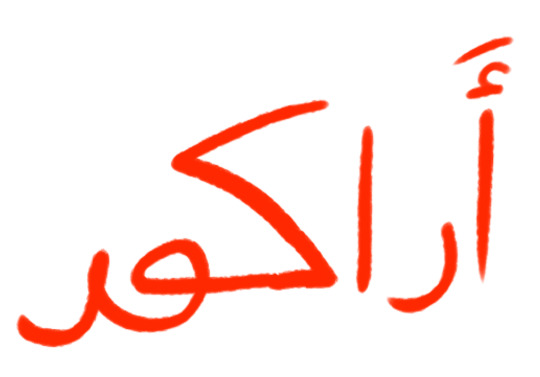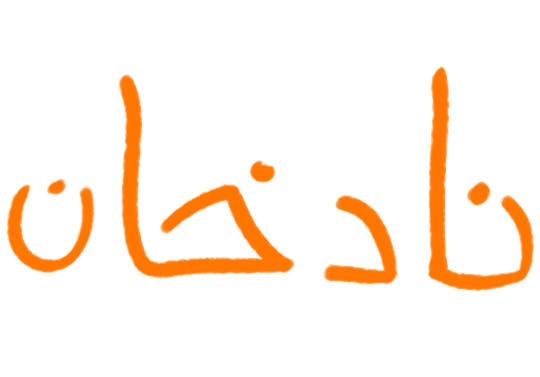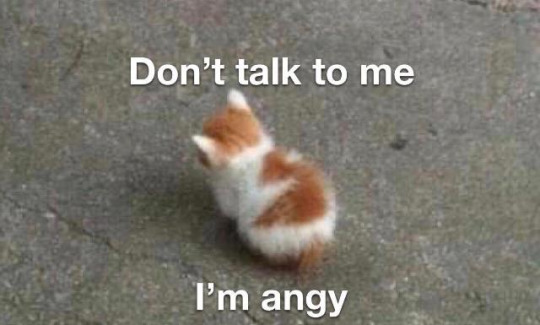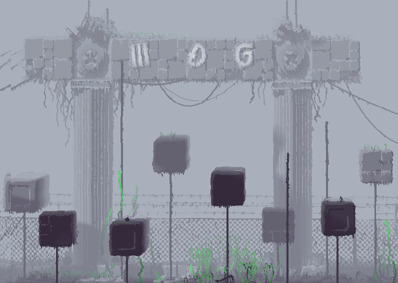#arabic letters in English
Explore tagged Tumblr posts
Video
Learn Alphabet Train | ইংরেজি বর্ণমালা | Alphabet ABC Train | Preschool ...
#youtube#english alphabet#english letters#abc learning#english alphabet sounds#learn arabic alphabet#alphabet phonics sounds#abc English#abcd alphabet#abcd with phonics#old english alphabet#phonetic alphabet English#english alphabet letters#writing of alphabets#english alphabet a to z#phonics a to z#abcd rhymes#small abcd#abcd z tak#arabic letters in English#alphabet phonics#Abcd#learning English alphabet#abc for kids#alphabet drawing#abc for children#a for apple#abc sound for children#alphabet for kids#abc drawing
1 note
·
View note
Text
الحب الأول لا يموت، بل الحب الحقيقي يأتي ليدفنه حياً
“The first loves does not die, but true love comes to bury it alive.”
— Mahmoud Darwish
#quotes#arabic quotes#arabic#literature#poetry#light academia#love quotes#dark academia#dark academia quotes#poem#dark academism#english literature#love poem#love poetry#mahmoud darwish quotes#mahmoud darwish#love letters#true love
399 notes
·
View notes
Text
W/ help from the epic @rainofthetwilight, I wrote out the three named Djinn's names in Arabic!



(The first is Arrakore, the second is Nadakhan, and the last is Khanjikhan!)
#dont ask about inconsistencies in how the letters are written#i do be writin arabic like i do be writin english#poorly#ninjago#ninjago dragons rising#ninjago nadakhan#nadakhan ninjago#arrakore ninjago#ninjago arrakore#khanjikhan ninjago#ninjago khanjikhan
81 notes
·
View notes
Note
Ж, ج, or J
Imo, Ж just rocks.
#alphabet#letters#my polls#poll time#polls#random polls#tumblr polls#tumblr#letters are so cool#arabic letters#arabic#cyrillic alphabet#cyrillic#english alphabet#english#russian letters are sexy#russian letters#russian#arabic letters are cute#pickaletter
10 notes
·
View notes
Text
ORV transcends language | how ORV is kind to readers (1.1k words)
the difficulties in analyzing text are already numerous without a language barrier, the way one word can mean 5 things and when you put it in a sentence suddenly it can mean 50 things and put that sentence in a paragraph? go further and put that paragraph in a page? construct a whole world around it, weave it into the fabric, and suddenly you are painting with words.
ORV is a daunting text, it calls and references so many mythos world wide, greek, roman, indian, chinese, japanese, it plays with meaning and intent and uses gaps in our knowledge like weapons, making us extrapolate our own meaning between the sentences, it is a tome of knowledge when it comes to histories and philosophies it feels at times like I will never understand all these things inside it.
One of the difficulties of reading a translated text is that when we analyze a text the authorial intent weighs very heavily in our minds, sure we can immerse ourselves in the world but once we start picking apart at the threads we hit a wall pretty soon when we start asking ourselves "what did the author mean by this?" however in a translated text there is an obvious gap, a game of telephone, did the translator actually capture the authors intent? or are we just reading the translators perception? sadly I don't know korean, and I cant say I have the drive to learn it, as such I know there will forever be a side of ORV that I will never be privy to - however I am bilingual and had the pleasure of reading two translated versions of ORV, an English translation and an Arabic translation, I didn't finish reading the said Arabic translation but a couple things stood out to me when I briefly did ORV is very kind to readers, following along in other stories can seem confusing at times, the pacing might be too fast and you might miss some details in a characters actions, the wording might be too vague and ah damn 20 pages later you realize you don't actually know why the characters are doing what they are doing. A big writing adage that you will see a lot is "show dont tell" and it holds merit, but ORV doesn't subscribe to it, because ORV shows AND tells. ORV built a world around readers and reading, and it makes sure that there is clarity every step of the way on what is happening, first by starting out as a homage to the isekai genre, and not deviating too much at the start, making the readers feel at home in a worldview they are familiar with, systems, leveling, videos games etc, and when it starts deviating it explains things with clarity that no matter how bad the translation is you understand the general intent, and secondly by being VERY blatant about the names of things and having a built in "story" system that is built on common story tropes and names the themes for you! take for example "unbroken faith" and "Blade of faith" both of these are two translated versions of dokja's sword. I will never know which one is closer to the original authorial intent, but I can tell you something, dokja's sword is symbolism to the faith he is wielding. (CH386 vague spoilers) or the entirety of "the great war of saints and demons" being about the concept of good and evil fighting and how kimcom aren't just above being good and evil, they are both. By using story tropes that we are familiar with to explain the complexity of situations in a simple forms you no longer have to worry about losing you readers understandings through language barriers. Every story in the world in every language knows what good vs evil is, every language has the words to explain them. and therein lies the beauty of ORV. But of course this isn't to say translations don't matter, it does speak to the strength of an original texts clarity when it accounts for the big things by making them simplified, but when we get down to the nitty gritty it starts to lose form take for example
"Tell me, you fool. If I continue to regress, will I ever get to meet you again?"
this person here has a great write up explaining the translators thoughts behind this specific line
but it has spawned a lot of debate in the English speaking fandom, as to the strength of its translation, I remember when I first saw someone claiming that its a mistranslation and "you fool" isn't part of the original, my first thought was "and so?" I do not mean to be dismissive to the original text, but I do not exist in a space where I can appreciate it in the original korean, I do not exist in a worldview where I can understand the historical implications of a lot of the characters, and even when I try to research it in English sadly the resources do not exist yet and its even more laughable to think of finding these things in Arabic. (Goryeos first sword doesn't have an English wikipedia page as a clear example) a lot of people have issues with the most popular English fantranslation of ORV - and I can understand why, being bilingual I have a lot of opinions on how a lot of things SHOULD be translated most of the time, and have done my own translation work but as I sit and think about this popular translation I cant help but just feel love for it, it might be lacking to some, it might be inaccurate at times to others, but its just enough for me to paint the gaps in the text with my perceptions, the words used are tied to my affections the Arabic translation of ORV is clunky, it is messy, it doesn't have as much grace as the English translation of ORV does, the words barely string together cohesively, but it has enough clarity, enough intent, and enough love for its readers, to catch their hearts, their attention and their energy
and so I want this to be the first post on this blog because, the author is dead here, not because I buried them, but because the tower of babel fell down a long time ago, and all we have is rubble and each other. a lot of the analysis on this blog will try to be respectful to the korean original wherever it can, however my words will be coming from an anglosphere perspective, and build on other English reader's perceptions of a text translation that a decent amount of people don't think is adequate, but just like ORV is kind to us, we can be kind back, I will quote the most popular version because its what connects us together, and while the authors intent might be lost, we can share our own meanings with each other, and build our own intent from the rubble.
#orv meta#orv#orv analysis#r1864#a big wall of text for me to go lol orv is queer and yjh is trans coded#but this is tumblr so everyone knows that already#also I still don't actually know what naming convention is correct I've seen many discussions about this#I just go with what is most popular for ease of understanding and ease of reading#also i find the naming thing very funny in english and latin letters because there isnt nearly this much drama about it in the arabic scrip#I just assume its like any other language that doesnt use latin and we are just trying to break english to sound out letters they dont have#i do like how dokjas name sounds like its splitting in the middle in the correct pronunciation 'dok-ja' adds to his duality#and i am sad that gets lost in the latin script sounding
113 notes
·
View notes
Text
y'all I became a Lego 😍

Yeah idk why I made this
#the Arabic text just reads “Lloyd” dont ask why I didn't simply write that in english#It wasn't even supposed to be Arabic it should have been urdu#But Google translate says its Arabic and that Lloyd has a different spelling in urdu#But the urdu spelling would have been pronounced “lied” so I just kept it in arabic#Names are names okay???#At least Lloyd's name doesn't have p or g in it because those aren't even letters in arabic#Though I think they sometimes use ج for g idk im not Arab lol#Shitpost#Guplia
18 notes
·
View notes
Text




#arabic poems#mahmoud darwish#quotes#poetry#english literature#girl blogger#writing#the bell jar#words words words#letters#critical role#lovely#lovers
13 notes
·
View notes
Text
Why do stupid english letters look so boring like russian and arabic look so cool then normal letters
like i can write ine a russian and i can look so cool like что ты имеешь в виду, я не могу использовать перевод? LOOK BRO honestly smash every russians i see
2 notes
·
View notes
Note
okay but what even is the English way? I’ve heard so many things (“cat-tar” “kudar” “cuh-tar” etc) idek whats in the realm of close enough
Ca-tar!
#that’s it#the proper Arabic pronounciation is not possible for those who don’t speak it#cause there are 2 letters (sounds) that don’t exist in English#or other languages I think??#so you just can’t.#I made a TikTok on how to say it if you wanna hear lol ans know my TikTok but I’m not linking it#asks#anonymous#chit chat
3 notes
·
View notes
Text
The only cultural appropriation white people has experience is "Emily in Paris" and I can say, I am angy at this show.

#This show is clearly written by a guy who never step a foot in Paris#Who dislike french people#Can we be racist of french people ? I guess he did#Who did not wrote a love letter to france but rather wrote a love letter to american using france has a “outsider perspective”#Also there is like ??? No arab in your show and not that many ethnicity outside of white where france is quite a diverse country#and YES you have to learn french#We do learn english to understand american#Also french enterprise don't act like that#Being jobless in france is TERRIFYING this is not holiday bitch#Also this is the straightest France can be#Emily go into the marais and did not come across a single lesbian#Did emily ever take the metro ?#Also there is no homeless person ?#I am french#And yet I am not ther angriest#cultural apropriation#French#france#emily in paris#Why did I give it a shot#Angry#angy#stereotypes#French people aren't mean for no reason#They are not lazy (it's the oppossite actually we are quite stressed out)#French people don't especially admire america#French people aren't all rich white or straight#French people can be sassy I admit but not Lofty or distateful
5 notes
·
View notes
Text
ma gadra 3la alcourses w kolo shi t3bt wallahi t3bttttt. So tiring and annoying for no reason bro I'm so sick of being in the education system t3bana shadeed wallahi 3ayza abki
#not a reblog#i keep forgetting what its called when u write arabic words in english letters i think its arabizi but i think my friends used to call it#smth else. i cant remember what though so ill just stick w arabizi#its fun anyways. i need to up my arabic skills and writing in it can only help#even if its with english letters lmao
0 notes
Video
youtube
Arabic Alphabet Cycle | Arbi Bornomala | Alphabet Train | আলিফ বা তা ছা ...
#youtube#arabic alphabet#alif ba ta sa#alphabet#arabic letters#learn arabic alphabet#Alif ba ta for kids#arbi bornomala#Arabic alphabet train#arbi shikka#আলিফ#আরবি বর্ণমালা#arabic alphabet in English#practice arabic writing#arabic language#arabic words#learn Arabic#arabic writing#quran in Arabic#arabic language course#basic arabic words#speak Arabic#arabic to English#quran Arabic to bangla#al quran arabic to bangla#arabic bangla English#bike ride#riding cycle#Cycle Ride#boat ride
10 notes
·
View notes
Text
I find it fascinating how like any arabic speaker can mostly understand older arabic but it doesn't work that same in english at all a few hundred years make older english an entirely different language
#Like i can understand an old letter written in arabic a thousand years ago#But english?? Wtf is this shit?
1 note
·
View note
Text
nothing tells you more about a language than how a native speaker in that language tries to speak your language
#its so precious#in arabic p becomes b#in urdu the oo and v sound come from the same letter#in polish w becomes v#languages#linguistics#english#poland#arabic
0 notes
Note
I, ي, or И
Personal opinion:
I is kinda mid. It needs more pizazz. But in an English perspective, I is a very important word we use everyday so I has that atleast.
И is frigging cool. Looks like a very badass symbol to me.
What I like the most is ي. It has the shape of a cute duck and it's very adorable. I might be a bit biased since I live in an Arab speaking country(I am an expat tho) and some of the coolest people I met were Arab.
#alphabet#letters#my polls#poll time#polls#random polls#tumblr polls#tumblr#letters are so cool#latin letters#latin#arabic#arabic alphabet#latin alphabet#arabic letters#english alphabet#english#arabic letters are cute#latin letters are badass#pickaletter
5 notes
·
View notes
Text
Oh! these symbols are part of a set! here are the raw files

Neon signs are derived from a random seed during the rendering of the level instead of deliberately picked out, so you're right that they're gibberish, but it's really fun to see analysis of them
Another chance to talk about Rain World's random symbols that suspiciously resemble Hebrew letters for no reason at all. Random wall symbols are not a rare phenomenon in this game. But there is a singular specific room that caught me thinking for a little too much. In SU_B04 you will find those three letters

When I first played the game I never noticed it, but now I can't remove my eyes from it every time I start a new playthrough.

The letters resemble those three letters: Sameh caf and shin, and they actually create a word (it's so exciting I know). The thing is, the letter shin is mostly used as a prefix, in this specific order it's used to create a word that means "That throne". And the problem is that in English it will sound perfectly fine, but in Hebrew this word is meaningless and confusing because the lack of a sentence. (let alone the word כס is also kind of incorrect on it's own because you need to add another word: the royalty - המלוכה, to imply this is a royal throne but it's not important now)


When add a prefix to a word YOU HAVE to use it in a sentence. This is how valid sentences look, the meaning of the word changes depends on the context presented in the sentence. Of course this is probably just a funny coincidence, because in the same region you can find a similar sight that is complete gibberish (???, D and G)

But the thought of Rain World, by random chance, containing a whole Hebrew word (in an invalid way but still) that means "this throne" on some luxurious ass pillars is completely hilarious, and spark my interest so much.
#rain world#i tend to call this the cyrillic set#but i've also heard people call it like. the greek symbols the latin symbols the uh. english letters et cetera#hebrew is a new comparison to me but yeah i see it with the shin-like symbol#it's a definite possibility considering that the arabic numeral 7 is just kinda chilling there lol#all of the symbol sets are inspired by a mix of sources
430 notes
·
View notes